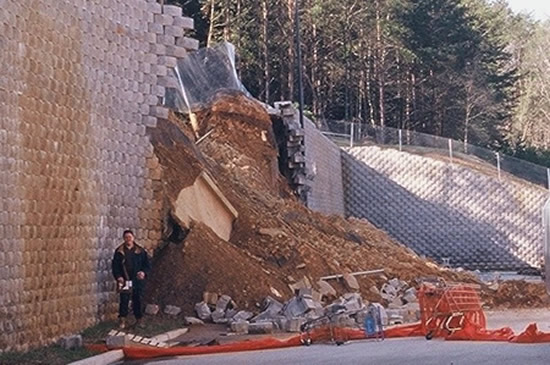
 The Geosynthetic Institute will host its next GSI Webinar on 12 October 2016. The topic is MSE Wall Back Drainage Design. GSI offers these 75-minute sessions (with Q&A time added to the end) on the second Wednesday of every month at 11:30 am (EDT).
The Geosynthetic Institute will host its next GSI Webinar on 12 October 2016. The topic is MSE Wall Back Drainage Design. GSI offers these 75-minute sessions (with Q&A time added to the end) on the second Wednesday of every month at 11:30 am (EDT).
Participants may be eligible to receive 1.5 professional development hours (PDHs) with completion of a 10-question multiple choice test following the webinar.
REGISTER ONLINE
COST
GSI Members – $200.00
Non GSI Members – $250.00
The webinar will be led by Dr. Robert M. Koerner, GSI Director Emeritus.
ABOUT MSE WALL BACK DRAINAGE DESIGN
By Robert Koerner – GSI’s database of projects includes details on 171 failed mechanically stabilized earth (MSE) walls reinforced with geogrids or geotextiles. Of those, 60% failed due to water. Furthermore, 61% were constructed with fine-grained silt and/or clay soils. Taken together, these low permeability backfill soils do not drain easily and instead build up hydrostatic pressure leading to the large number of failures.
In order to avoid such pressures, back drainage is necessary between the reinforced and retained soil zones. This webinar is focuses entirely on the proper design of this back drainage zone and its outlet system beneath the reinforced soil zone. The design is applicable to sand as the back drainage material; however, its near vertical orientation lends toward geocomposite drainage systems. Ten different geocomposites will be tested for their transmissivity and illustrated in the four numeric examples that are presented. In all cases a flow rate factor-of-safety is developed and analyzed accordingly.
Participants will understand how internal and external water enters and acts upon the reinforced soil zone of MSE walls when constructed with low hydraulic conductivity silt and clay soils. The avoidance of hydrostatic pressure using geocomposite drains is the key in this regard.
Technically, proper flow rate factor-of-safety calculations will be formulated by comparing allowable flow rates (using a transmissivity test) with required flow rates (using a finite difference approach). Numeric examples are presented to specifically illustrate the design process.
Learn more about GSI webinars and register for MSE Wall Back Drainage Design at http://www.geosynthetic-institute.org/webinar.htm.
**
View other presentations from GSI’s Dr. Robert Koerner at www.geo-u.com, where additional presentations on MSE Wall Remediation and Monitoring, MSE Wall Inspection, and many other applications are available on-demand.












